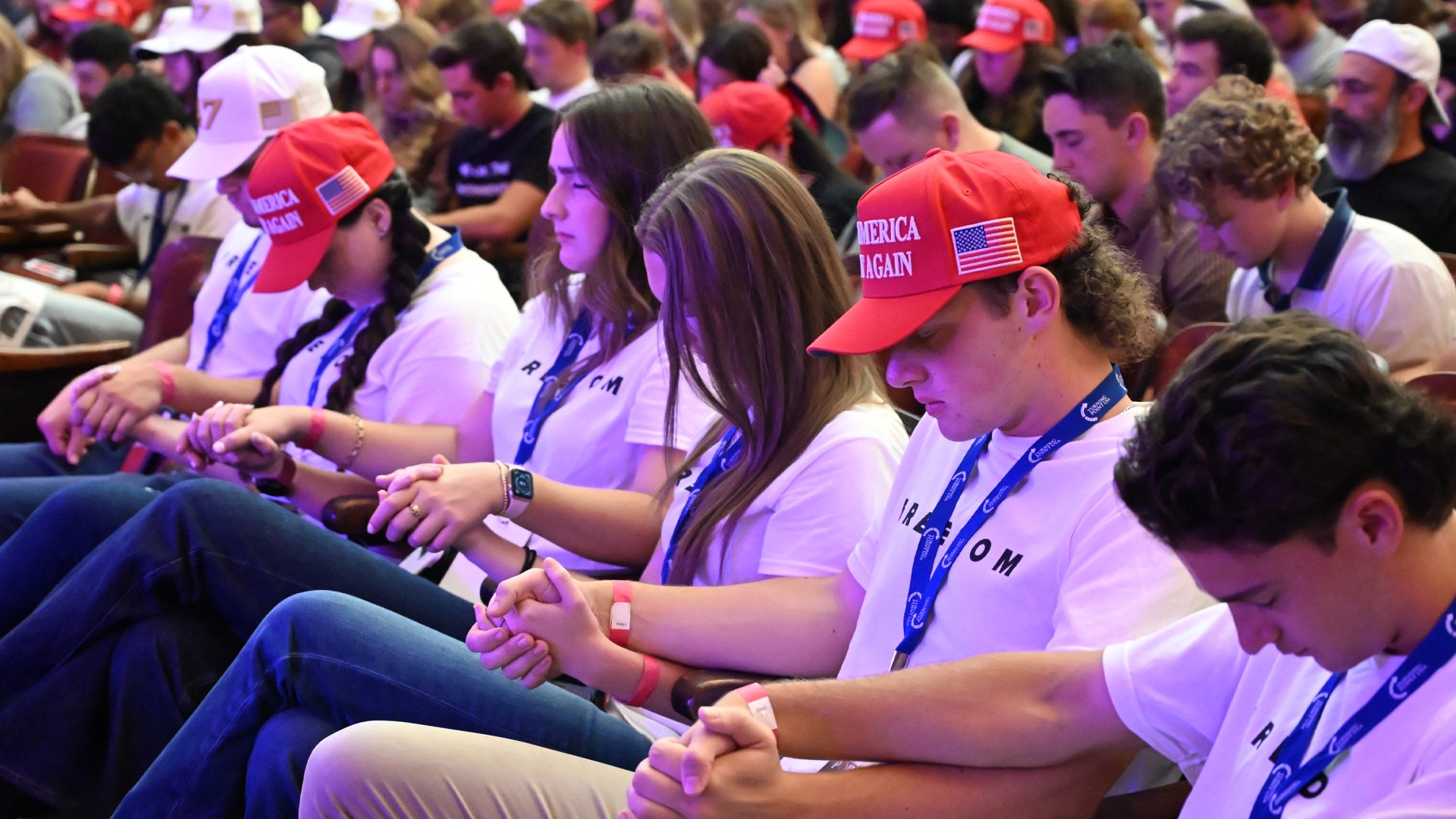On September 28, the NFL announced that popular Puerto Rican recording artist Bad Bunny would headline the 2026 Super Bowl halftime show. The news sparked conservative backlash. A petition on Change.org calling on the NFL to replace Bad Bunny with country artist George Strait—who the petition says “embodies the heart and soul of American music”—has gathered over 66,000 signatures.
Bad Bunny has been critical of the current administration’s immigration policy and announced earlier this year that he would not include the continental US in his 2025–2026 tour because he was concerned about immigration raids impacting his fans. After the NFL’s announcement, Department of Homeland Security Secretary Kristi Noem stated that the US Immigration and Customs Enforcement (ICE) would be “all over” the Super Bowl.
On October 9, the conservative political organization Turning Point USA announced on X that it would be producing an alternative “All-American Halftime Show.” The organization has not stated that the event is a direct response to the selection of Bad Bunny as the headliner, who sings primarily in Spanish. The event website does not yet list any confirmed performers, but it does allow visitors to fill out a form and select the musical genres they want to see included in the show. The first option on the list is “anything in English,” followed by Americana, classic rock, country, hip-hop, pop, and worship.
Turning Point USA’s halftime show might not be the only counterprogramming during the 2026 Super Bowl; Christian musicians have also floated the idea of a safe-for-the-whole-family performance.
On October 4, worship musician Cory Asbury posted a video on Instagram proposing an “alternative, family-friendly halftime show” for the 2026 Super Bowl. Asbury, most widely known as the writer of the song “Reckless Love,” said that the halftime show is usually “raunchy as heck.”
“What if we threw together an alternate show at a different venue with just the biggest Christian artists and glorified the name of Jesus on a gigantic scale?” Asbury said.
The next day, Forrest Frank, whose song “Your Way’s Better” hit the Billboard Hot 100 over the summer, posted a reaction video to Asbury’s, which named Frank as a collaborator. The posts sparked excitement and speculation among Christian music fans.
Currently, it’s unclear whether there has been any direct collaboration between Turning Point USA and Cory Asbury and Forrest Frank. Both Christian artists have been quiet about their plans on social media since their initial posts.
If Asbury and Frank have their own plans for a Christian alternative show that is not affiliated with Turning Point USA, there could be three separate halftime programs competing for viewers during the 2026 Super Bowl.
Historian Paul Emory Putz told CT that there is a long history of counterprogramming and evangelistic efforts related to the Super Bowl and its halftime show, which was not the major entertainment event it is now until 1993, when the NFL hired Michael Jackson to perform. The year prior, FOX aired a live episode of the sketch comedy show In Living Color during halftime, and millions of viewers who switched the channel from CBS to FOX didn’t return to the Super Bowl afterward. Viewership in the second half plummeted.
Jackson’s 1993 performance elevated the status of the Super Bowl halftime show. Evangelistic organizations began to see the event as an opportunity to reach a huge audience with the gospel. In 1993, Sports Outreach America, headed by Ralph Drollinger (now the leader of Capitol Ministries), distributed video tapes featuring Christian athletes sharing their testimonies and encouraged Christians to host watch parties in their homes or churches and show the videos during the halftime show.
Putz noted that this tradition of using halftime to highlight player testimonies goes back to the 1950s, when evangelistic ministries would take basketball teams overseas and speak to the spectators about Christ’s work in their lives midway through the game.
Historically, said Putz, sports evangelism and halftime testimonies weren’t explicitly political. “The priorities were evangelism and gospel presentations,” said Putz, who pointed out that eventually, Drollinger left Sports Outreach America because he became more interested in political activism.
Over the past two decades, Christians have objected to the sexual and sometimes explicit content of Super Bowl halftime shows. The famous wardrobe malfunction during Janet Jackson and Justin Timberlake’s 2004 performance is one example.
Derwin Gray, a former NFL player and now pastor of Transformation Church, told CT that he thinks it’s understandable for Christians to want to watch a show that their kids can enjoy too.
“We all know that halftime shows can get risqué,” said Gray. “But you also have a right to just turn off your TV.”
Gray said that he is concerned about the political dimension of this year’s halftime show backlash.
“If there is pushback because Bad Bunny is Latino, I think that smacks of bigotry,” said Gray.
Bad Bunny is one of the most-streamed artists in the world, and 2026 won’t be his first Super Bowl performance—he also appeared with Shakira and Jennifer Lopez in 2020.
“The [NFL] didn’t choose Bad Bunny because they like, or even care about, his politics,” wrote Xochitl Gonzalez in The Atlantic. “They chose him because he’s enormously popular—he is the most-streamed male artist in the world on Spotify—and that’s good for business.”
Gray said that, as a player, he never cared who the halftime performer was. As a pastor, he hopes that an alternative halftime show doesn’t capture Christians’ enthusiasm because of politics.
“If there are Christian artists who want to do a Christian halftime show with praise and worship, great,” said Gray. “I hope there’s a gospel presentation. I hope there’s no political agenda.”














